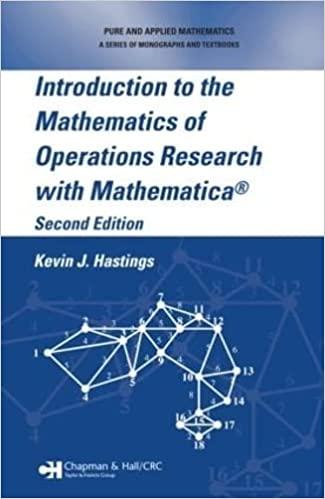On a television game show, a contestant is offered a sequence of prizes, which are independent and
Question:
On a television game show, a contestant is offered a sequence of prizes, which are independent and identically distributed random variables taking possible values \(\$ 1000, \$ 2000\), and \(\$ 3000\) with probabilities \(1 / 2,1 / 8\), and \(1 / 8\), respectively. The contestant may at any time choose to accept a prize, at which point the game is over. The game show host may, at some point, choose to offer no more prizes, and the contestant departs with nothing. This happens with probability \(1 / 4\). When should the contestant accept a prize?
Fantastic news! We've Found the answer you've been seeking!
Step by Step Answer:
Related Book For 

Introduction To The Mathematics Of Operations Research With Mathematica
ISBN: 9781574446128
1st Edition
Authors: Kevin J Hastings
Question Posted:





